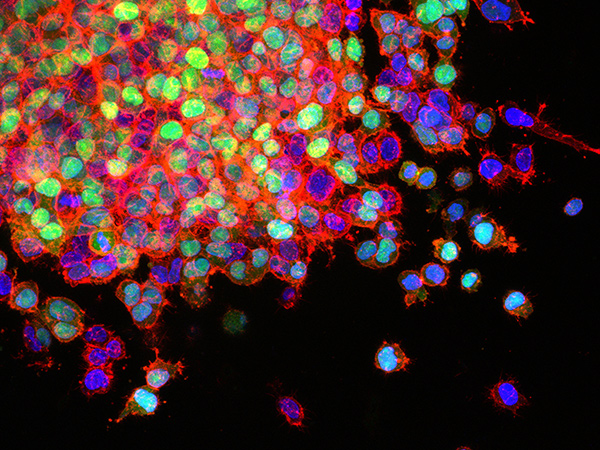Combination Immunotherapy for Lung Cancer
The FDA has approved a combination of nivolumab and ipilimumab to treat certain patients with metastatic lung cancer.

The U.S. Food and Drug Administration (FDA) has expanded the use of the combination of nivolumab (Opdivo) and ipilimumab (Yervoy) to include the initial treatment of certain patients with metastatic non–small cell lung cancer (NSCLC).
According to the National Cancer Institute, more than 228,000 U.S. adults will be newly diagnosed with lung cancer in 2020. More than 80 percent of these individuals will have NSCLC, making it the most common type of lung cancer.
Most lung cancers are diagnosed after they have already spread (metastasized) to distant parts of the body. New treatments are urgently needed for metastatic lung cancer because the five-year relative survival rate is just 5.8 percent, according to federal statistics.
Nivolumab is an immunotherapeutic that targets the protein PD-1, releasing the brake on cancer-fighting immune cells called T cells. It was first approved for treating metastatic NSCLC in March 2015, when it was approved for those whose disease has progressed after cytotoxic chemotherapy.
The FDA approval of nivolumab in combination with ipilimumab is for patients who have tumors that express at least 1 percent PD-L1, as determined by an FDA-approved test, and are not fueled by mutations in either the EGFR gene or the ALK gene.
As the FDA announced its decision about the nivolumab–ipilimumab combination, it also approved the PD-L1 IHC 28-8 pharmDx test as a companion diagnostic device for identifying those patients with NSCLC who are eligible for treatment with the combination.
According to the FDA statement, the nivolumab-ipilimumab combination was approved based on results from the phase III CHECKMATE-227 clinical trial. The data showed that the median overall survival for patients with PD-L1 tumor expression greater than or equal to 1 percent who received nivolumab and ipilimumab was significantly improved compared with those who received platinum-based cytotoxic chemotherapy; 17.1 months compared with 14.9 months.
The combination of nivolumab and ipilimumab was first approved by the FDA for treating metastatic melanoma in September 2015. It was subsequently approved for treating certain patients with advanced kidney cancer in April 2018; for treating certain patients with metastatic colorectal cancer in July 2018; and for treating certain patients with advanced liver cancer in March 2020.
The FDA approval was rendered on May 15, 2020.
